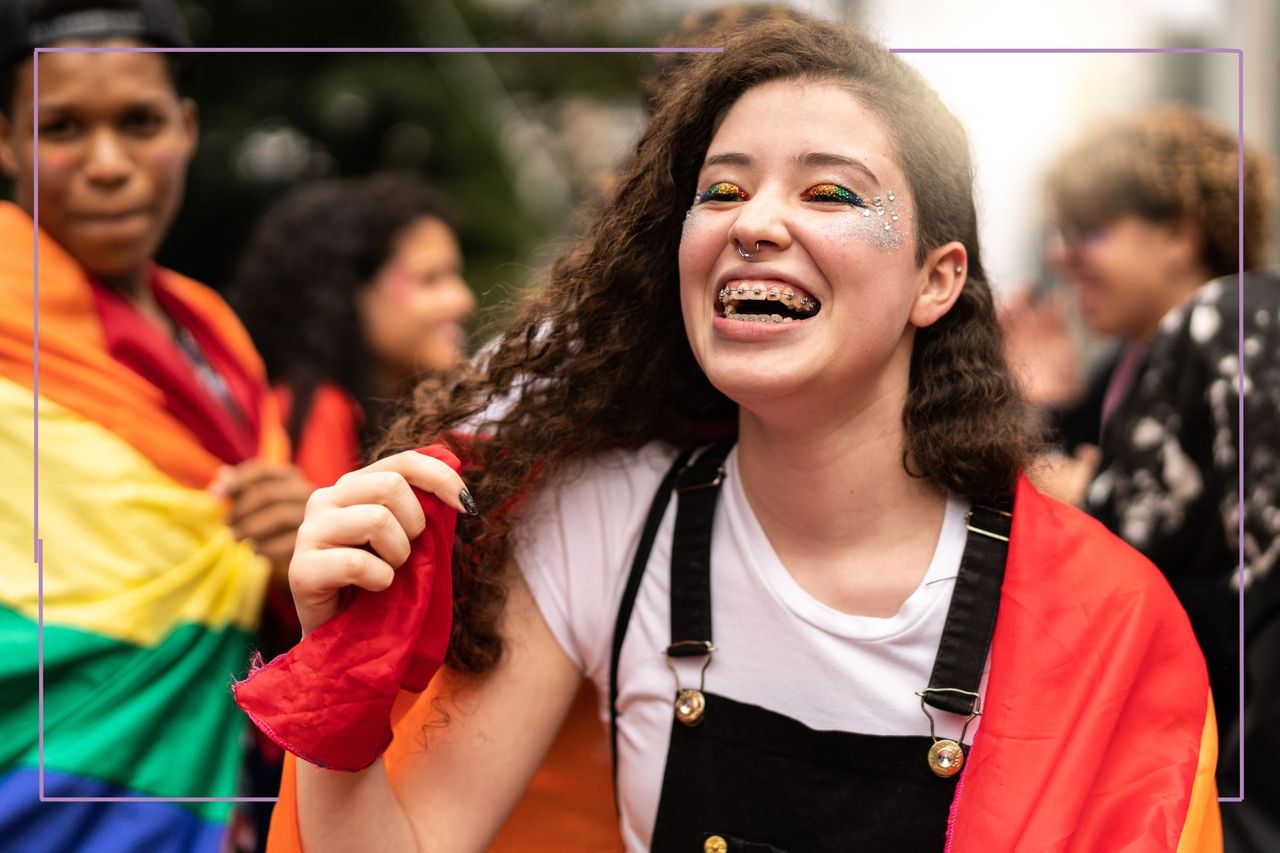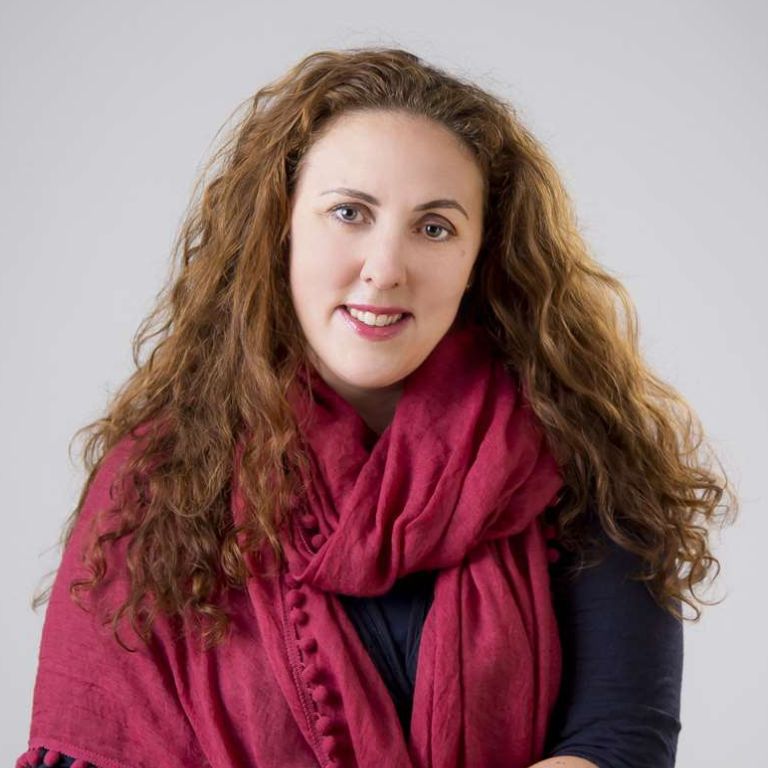What to do if you think your tween or teen might be LGBQT+, 6 tips from a child development expert (and it's never too late for #4)
It has more to do with becoming an ally than you might think


Did you know that roughly twice the amount of teens identify as LGBTQ+ compared to adults over 21? Young people of today seem to embrace identity more and be more inclusive than previous generations.
While your sex-ed sessions at school would have glossed over anything that wasn’t between a man and a woman in a fully heterosexual (preferably married) relationship, today, schools are allowed to educate – and most importantly support – children to cover relationships in all their different iterations. So this, along with the fact that they are the first generation to have grown up without the shackles of Section 28; a piece of government legislation which prohibited local councils, and particularly schools, from ‘promoting homosexuality’, kind of makes sense that they are more open to who they are.
Are children today more likely to be LGBTQ+? While the media may focus on a ‘woke agenda’ which somehow 'encourages children to be gay', the reality is far more nuanced, involving more acceptance, and less internalised homophobia (where those who may be lesbian, gay, or bi hold homophobic views, and ultimately self-hatred, due to their upbringing) and feeling more able to freely talk about their identities and beliefs with their peers as well as family and teachers.
As a parent, you may have an inkling that your young person is LGBTQ+, and wonder how best to talk to them about coming out, or perhaps you just want to raise them in a way that helps them to know that you will always accept them and encourage them to be an ally. Research shows that teens who identify as LGBTQ+ are more prone to struggling with their mental health and that support from families is key. In this article, I share the best ways this can be achieved...
What to do if you think your tween or teen might be LGBQT+
- Start with facing your own subconscious beliefs
- Never presume anything
- Wait for your young person
- Create an atmosphere of acceptance at home
- Use inclusive language
- Call out friends and family
1. Start with facing your own subconscious beliefs
As we discussed previously, you were likely raised in the era of Section 28, a piece of legislation brought into force by Margaret Thatcher’s government. It was in place between 1988 and 2000 in Scotland and 2003 in England and Wales. Section 28 stated that local authorities “shall not intentionally promote homosexuality or publish material to promote homosexuality" or "promote the teaching in any maintained school of the acceptability of homosexuality as a pretended family relationship”. The lack of education on LGBTQ+ issues at school, and hushed tones, or outright homophobia at home, or in other community groups, such as places of worship, led to many in our generation growing up with subconscious beliefs that are problematic and exclusive. If we want to be fully supportive of our children and to raise them in a way that is fully supportive of others, we can only do so if we first consider the views and environment in which we were raised.
2. Never presume anything
Presuming that your child is LGBTQ+ because of the way they speak, the clothes they like to wear, the people they like to hang out with, or the music they listen to is unhelpful at best and hurtful at worst. Teenagers can and do experiment with their identity and presuming and labelling them based upon their acts or words can be damaging to them. Similarly, if you know that your child is gay, for instance, presuming that friends of the same sex are romantic partners can be hurtful. If they were straight you wouldn’t immediately jump to the conclusion that a friend of the opposite sex is a boyfriend or girlfriend, the same applies here.
3. Wait for your young person
If you’re pretty certain your young person is LGBTQ+ then the best thing you can do in terms of talking about it with them, is nothing. Waiting for your young person to feel comfortable enough with who they are and most importantly, with feeling able to tell you is key.
GoodtoKnow Newsletter
Parenting advice, hot topics, best buys and family finance tips delivered straight to your inbox.

However accepting you are, forcing them to admit their sexuality to you before they are ready is not supportive. You can however drop hints about your views on LGBTQ+ issues, so that they know you will support them (see the next point) if and when they feel ready, but there is a big difference between this support and outright outing them.
4. Create an atmosphere of acceptance at home
From as early as possible let your young person know that your family is a place of tolerance and acceptance. Include books where families and protagonists are part of the LGBTQ+ community, watch films with LGBTQ+ themes and characters together, comment positively on differences and discuss discrimination, talk about equality and equity and the history of the LGBTQ+ movement, particularly during Pride month (June) and consider attending a local Pride march as a family. Your home should be a place of safety and support for your teen to be their authentic self.
5. use inclusive language
Growing up in a heteronormative world, one which places a relationship between a man and a woman as ‘the norm,’ we can often slip into using exclusive language unknowingly. For instance, when talking about the future, don’t say “when you get married to your future wife/husband” but instead say “when you make a future with the person you love.” Focus on talking about a partner, not a boyfriend or girlfriend, whenever the topic of relationships crops up.
6. Call out friends and family
Despite our best efforts at home, often we have friends and family members who are homophobic, or who use language and terminology which is hurtful. Make sure to listen out for this and pick them up on it, especially in front of your teen. Older generations often don’t realise that their words are unacceptable and discriminatory, they were raised in a different time, but this doesn’t mean it is OK to let their words, and their views, slip. Your role is to be a champion for your young person and that means having to have the difficult conversations in order to stand up for them.
Main takeaway
There will undoubtedly be times when you say or do the wrong thing on your quest to becoming more LGBTQ+ inclusive and that’s OK. This work is about constantly trying to be more inclusive, nobody is perfect, especially those of us raised during Section 28 times. In fact, the times when you slip up and correct yourself are arguably more valuable to your young person. For them, seeing that you are really trying is important and without the mistakes, they wouldn’t have this opportunity. Ultimately, what your young person needs, whether they identify as a member of the LGBTQ+ community or not, is a parent who wants to do their best for them and is willing to learn, and as you’re reading this article, I’m pretty sure you can tick that point off already.
Here at GoodToKnow we work with Sarah as one of our experts, creating engaging, relatable and helpful teen content such as busting the myth that 'teenagers are lazy' will make you feel relief, and tips to get your teen to revise will make you realise it's not just you. Plus her insight into why teenagers never leave their room is hugely relatable - send to anyone in your life with a teen.

Sarah Ockwell-Smith is a mother of four young adults. She has a background in Psychology and clinical research and has also worked as an antenatal teacher and doula. Sarah has written fifteen childcare books, covering everything from newborns to teenagers, with a special emphasis on ‘gentle parenting’. Sarah regularly contributes to National TV and radio, including Good Morning Britain and BBC Radio 4 and 5, she has also written for national publications including The Guardian, The Express, The Daily Mail, The IPaper and The HuffPost. Sarah lives with her family, two rescue dogs, cats and chickens in North Essex. Sarah's newest book How to raise a teen is due to hit shelves July 4th 2024.
-
 Why do I crave sugar? Causes of sugar cravings and how to stop them
Why do I crave sugar? Causes of sugar cravings and how to stop themIf you're someone who suffers from sugar cravings you'll know how hard it is to give up the sweet stuff. But you're not alone.
By Debra Waters Published
-
 Low sodium diet: the benefits of reducing salt and what foods to eat
Low sodium diet: the benefits of reducing salt and what foods to eatBy Emily-Ann Elliott Published